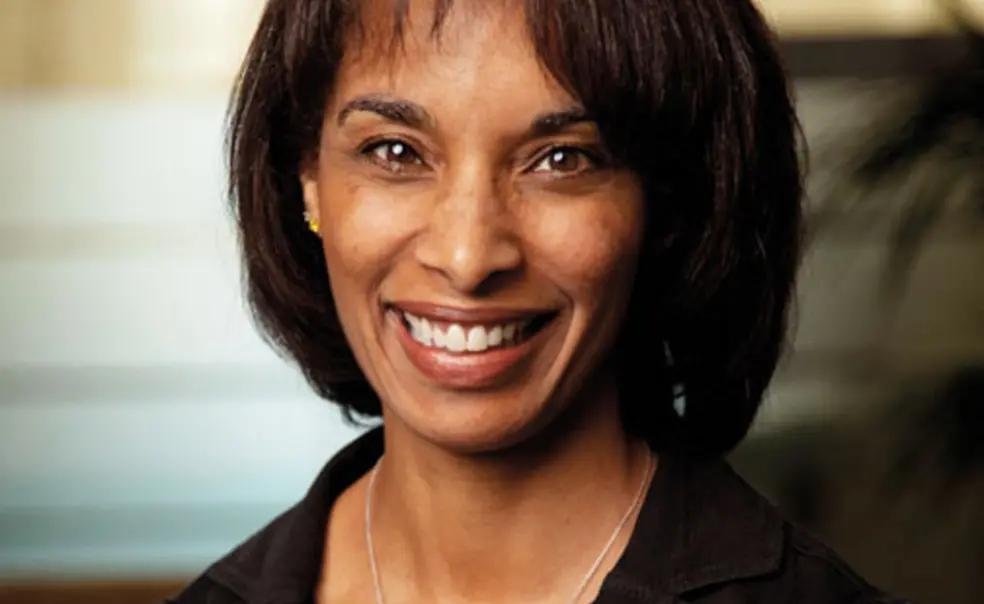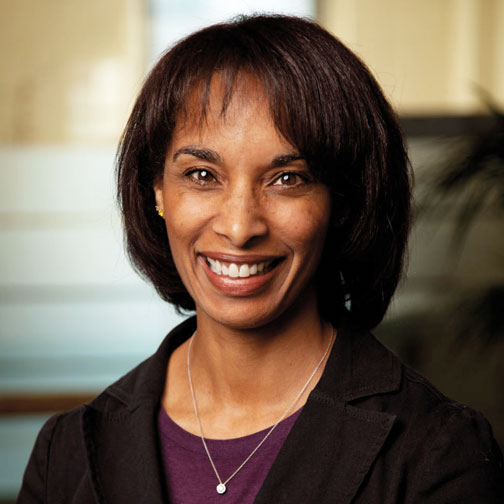PAW Asks: Cecilia Rouse
The Woodrow Wilson School Dean and Former Obama Adviser Discusses the Representation of Women in Economics
Cecilia Rouse, a leading scholar of the economics of labor and education, serves as the dean of the Woodrow Wilson School of Public and International Affairs. In addition to spending more than two decades on the faculty, Rouse was a member of President Barack Obama’s Council of Economic Advisers from 2009 to 2011. PAW spoke to Rouse about the evolving representation of women in economics.
In a recent Washington Post article, you argued that one of the reasons for the underrepresentation of women in economics was due to a lack of role models. Can you elaborate?
Well, because of the historical lack of representation of women, and I would say lack of representation of minorities as well, in economics, one factor in women deciding to become economists, or at least especially economists at the highest level, is just they can’t see it. They don’t necessarily see people like themselves who are interested in similar topics — not that all women are interested in the same topics — but just see that in this largely male-dominated field that women can have a voice, too.
Now, I’m somebody that’s had role models that are men, so I don’t think women can only have women as role models. But I think for some, that can really make a difference.
What other factors might contribute to the disparity?
I think a lot of people are not exposed to economics, in high school, early on. I think this is changing. I think that the kinds of stereotypes of what an economist does may not appeal to many women. Very stereotypical comment, I should be flogging myself, but I think especially as economists have gotten better about encroaching on other fields and have shown that you can apply economic theory and economic techniques to a lot of interesting questions including education, health care, labor economics, which really was pioneered by Gary Becker [’51], a man who was applying it to labor and education and the family. But to show that you can use economics in these many different areas opened it up to many people, not just women, but others who weren’t just interested in going to Wall Street and making a lot of money.
Janet Yellen took office earlier this month as Federal Reserve chair. How might her selection by President Obama affect these discussions on women in economics?
Well, they are impacting [these discussions] because people are having them again. Going back to the stereotypes — and this goes back to why role models can make a difference — Janet Yellen’s persona, she’s very accomplished as an economist, many people argue that on the Federal Reserve Board … her record is much stronger than those of the men. And yet many people in the press didn’t think she was as commanding. … The person I think of is Paul Volcker [’49], who is a very commanding presence; Janet Yellen is much smaller and doesn’t come across [in the same way], and yet she’s whip smart, knows her field, and will do a phenomenal job at the Fed. … You don’t have to look and walk the same way, and yet you can still do it!
With more women seeking a Ph.D. in economics, what factors account for a glass ceiling that results in so few women in positions at the highest levels?
They call that the leaky pipeline. So, one thing that’s hard to disentangle is if we look at the number of women who are in graduate school today compared to the number of tenured women, is it that there are many fewer tenured women because many women dropped out along the way or because there were many fewer women in graduate school back when the women of tenured age were in graduate school. So it’s a little bit of both. Some of it is what they would say is a cohort effect. … As we’re making progress, naturally there will be more women at the tenured ranks and at the highest levels.
That said, I think that people have identified certain points where women make different decisions. Out of graduate school, we see that more women may be more likely to consider jobs outside of the academy, which in my book if you’re using your economic skills in other areas, that is fine. But then along the tenure track, one of the challenges, as one economist put it: The tenure track coincides with the mommy track. There can be big decisions about family versus work. I think it’s very possible to do both, but when one is untenured … it’s a little harder to juggle a family. Once you have tenure, there’s almost no better job for balancing family and career. But before tenure, it’s more treacherous, and yet those are the times when many people are trying to start a family.
— Interview conducted and condensed by Claire Nuchtern ’15













No responses yet